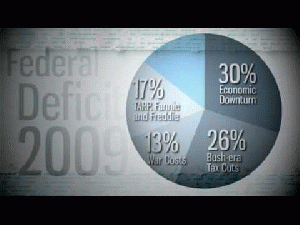Cross-posted from Campaign for America's Future
When a product sells phenomenally well, as Thomas Piketty's new book is currently doing, popular economic theory says that means one of two things: either it's filling a substantial unmet demand, or the product is exceptionally well executed. In the case of "Capital in the Twenty-First Century," both statements are true.
We are told that "Capital" is now at the top of the Amazon sales charts, outselling even mass-market novels with movie tie-ins like "Divergent." That kind of meritocratic success story is, as Piketty's work demonstrates, increasingly rare.
Piketty has given us a superior product. He has brilliantly and eloquently analyzed the crisis of inequality that threatens the global economy. The question now is, what do we do about it?
Success Story
There's a certain irony in the fact that this book, rooted in historical economic principles and concerned with the threat of oligopoly wealth, is putting a few more dollars in the pocket of Jeff Bezos, Amazon's owner. But these surprising sales figures tell us something very important: People are yearning for an explanation of the dire economic straits in which they find themselves. Piketty's highly readable style, innovative mind, and breadth of knowledge have made him the ideal candidate to meet this need.
As Piketty himself points out, the Occupy Wall Street movement showed that even seemingly abstruse mathematical concepts like "the top centile" can galvanize large numbers of people when they are translated into simpler language like "the 1 percent." And, in fact, the phrase "we are the 99 percent" is derived from years of research by Piketty and his co-authors.
Much has already been written about this brilliant book. Paul Krugman has been both generous and gracious in his praise. Krugman called it "truly superb" and a "magnificent, sweeping meditation on inequality" in the New York Review of Books, and spent a half-hour explaining its importance in an informative interview with Bill Moyers.
The praise is certainly warranted. Piketty shows a command of both the economic data and its historical context. (Piketty is a firm believer that the distinction between economics and other social sciences is wrong-headed and calls for more works of "serial history.")
Piketty also engages the reader with an eclectic perspective that leads him to investigate both the likely income needs of a Balzac hero and the probable population of the planet at the time of Christ's birth.
Economists and policy analysts concerned with wealth inequality have long depended on the research of Piketty and his collaborators. This book has turned that research into what Krugman calls a "Eureka" moment. Adds Krugman: "We'll never talk about wealth and inequality the same way..."
Agreed. But then what? What do we do once we've read "Capital"?
Perhaps it's best to start by acknowledging that, however bad you think inequality has become, it's worse than that. Piketty paints the picture of global wealth collapsing in upon itself -- and the small percentage of the population that holds most of it -- as if it were the fabric of the universe collapsing into a black hole.
It's impossible to summarize a 600-page book. But some of its key insights, including the now-famous formula r > g, lead the reader to conclude that, unless something changes, the wealthy will keep getting wealthier at an accelerating (and, to Piketty, "terrifying") rate.
Piketty addresses wage inequality as well as capital imbalance. But he argues that the debate has focused too much on salary (because that information is readily accessible in tax data) and has therefore overlooked the accumulation of capital -- a trend which, among other things, is creating a global oligarchical overclass with wealth and influence on an almost unimaginable scale.
A Pointed Critique
(Note: You can view every article as one long page if you sign up as an Advocate Member, or higher).






